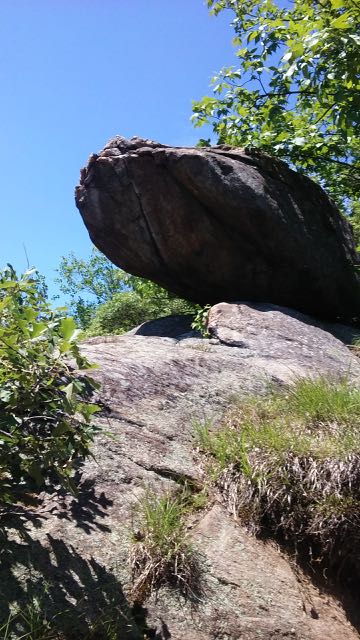This poem was a bit of a slog, though the alliteration was impressive. I think I'll have to re-read it a few times before making any meaningful comment.
It's divided into six parts, and looks a lot like a play with four characters; most of the poetry is the characters' thoughts and dialogue. But there is also narration and some more casual background poetry (e.g. from a jukebox in the bar where we begin).
The curtain opens on four named characters in a bar on the night of All Souls:
- QUANT, a "tired old widower who would never be more now than a clerk in a shipping office near the Battery." His "private mental life," however, was apparently shaped as a young man "when unempoyed during a depression, he had spent many hours one winter in the Public Library reading for the most part – he could not have told you why – books on Mythology" (257).
- MALIN is a Medical Intelligence Officer on leave for a few days from the Canadian Air Force.
- ROSETTA is a very successful buyer for a big department store, who apparently had once been poor. She loves English detective stories, which apparently fuel her imagination. "[T]hough she was not as young as she looked, there were plenty of men who either were deceived or preferred a girl who might be experienced – which indeed she was" (id.).
- EMBLE is a young man in the Navy who is "fully conscious of the attraction of his uniform to both sexes," although the ease of his sexual conquests perversely fuels his lack of confidence (id.). As he looks around the bar, he is "slightly contemptuous when he caught an admiring glance, and slightly piqued when he did not" (258).
* * *
QUANT says:
The wall is fallen
That Balbus built, and back they come
The Dark Ones to dwell in the statues,
Manias in marble, messengers from
The Nothing who nothings. Night descends;
Through thickening darkness thin uneases,
Ravenous unreals, perambulate
Our paths and pickles.
(p. 328)
Apparently the reference to Balbus is less a historically important Roman wall than a cultural reference to a (I presume British)
Latin workbook dating from 1880 or so.
The reference to "[t]he Nothing who nothings" seems to reflect the idea (perhaps made famous by Aquinas??) that evil/sin is very nearly nothing; to turn away from God, it is necessary to turn in on oneself. As MacDonald says to the narrator in
The Great Divorce: “For a damned soul is nearly nothing: it is shrunk, shut up in itself.” And yet, capitalizing the first "Nothing" almost seems to undercut this insight by conferring a title or prominence to the nothing.
I find that last sentence strange to parse. It seems to make sense, at first, considering each of the bold words as verbs:
Night descends; through thickening darkness thin uneases, ravenous unreals, ...
But then you get to the word "perambulate." This could be a verb for a plural noun, but there is no antecedent (or at least the comma after "unreals" initially seems to cut off this possibility). It could theoretically be an adjective, but only at the cost of parallelism.
So I think we need to see "uneases" and "unreals" as plural nouns, and the "ravenous unreals" is essentially a parenthetical re-formulation or amplification of "thin uneases." That means we could more or less read it as:
Night descends; through thickening darkness thin uneases perambulate our paths and pickles.






















